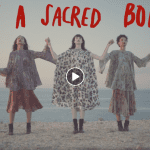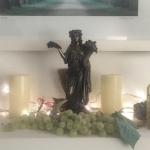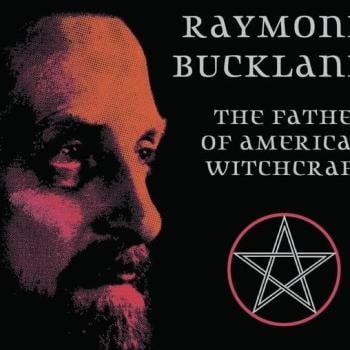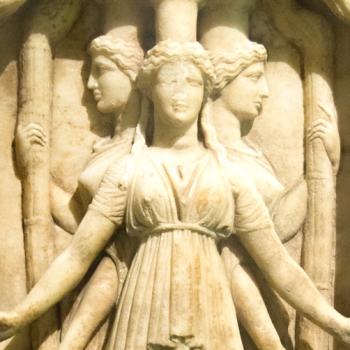Ten years ago if you had asked me to define Witchcraft I would have probably given you a rather generic answer that included a Goddess, the sabbats, and most likely magickal practice. I would have been rather passionate about it, but hopefully not so close-minded that I wouldn’t have accept answers differing from my own. Today when someone asks me that question I tend to shrug a little bit and answer with “whatever one wants it to be.”
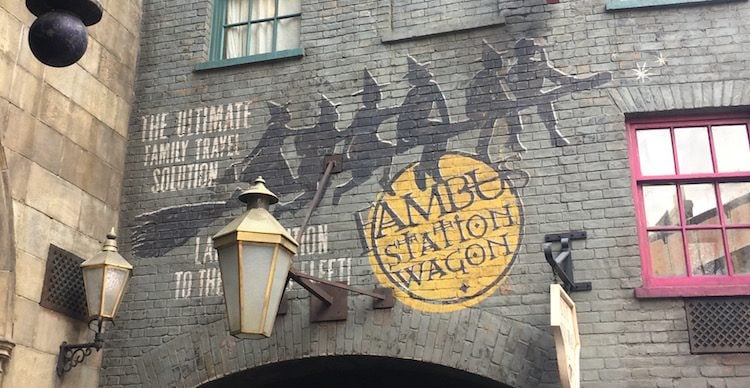
When it comes to words the most important thing about them is how they are used in the here and now. The words “Witch” and “Witchcraft” have been used in dozens of ways over the last 1000 years or whatever, and they continue to be used in a variety of ways in the present. Historically (and still to a lot of people including anthropologists), witchcraft is the practice of baneful magick (usually by women). To some people witchcraft is any sort of magickal practice, regardless of whether or not that practice has another name among practitioners. (I tend to cringe when I hear people who don’t identify as Witches being called Witches, I’ve never thought it was fair to those folks.)
For several decades now the words Wicca and Witchcraft have been used interchangeably, and this upsets a lot of people, but generally I think we are smart enough to figure out context. Wiccans identify as Witches because they are Witches, but a Wiccan calling themselves a Witch doesn’t imply that what they do is the only form of Witchcraft. Witchcraft often has a spiritual current, most certainly practices like Traditional Witchcraft are about more than just magick. And for probably 100 years now women have been using the words witch and witchcraft as form of empowerment, and that’s cool too.
I’m always amused when I read “requirements” of Witchcraft practice because they often include things either I or some of my friends don’t do. There are some people who prioritize working with the dead. This has never really appealed to me or even interested me apart from certain Samhain rites. I think nature is important, but nature is important in several other religious traditions too (not every Christian is out to destroy the earth, and I’ve seen a whole lot of Witches who don’t seem to give two shits about the environment). Connecting to the Wheel of the Year is an integral part of my own practice, but I think the Wiccan-Witchcraft I practice is probably a magickal religion first and a nature religion second. (Such feelings are far from universal, and nor would I ever claim that every Wiccan-Witch feels similarly.)

Magick is most certainly a shared thread in most things labeled witchcraft, and many people label any magickal practice witchcraft. But there are also Aesthetic Witches who enjoy the trappings and empowerment of Witchcraft without fully committing to magickal practice. What they do looks a lot like what I do, and even if they don’t call it magick it’s mostly the same thing (probably). Magickal practice and/or the trappings of it are probably the only things we can place on the altar of Witchcraft as an essential (and even then someone is going to be an exception to the rule).
Words evolve and can’t be owned, contained, or boxed in. This seems to bother a lot of people, but I’ve said to before and I’ll say it again “How you practice Witchcraft has no impact on how I practice Witchcraft unless I choose for it to do so.” I have to assume that those who are policing the cauldron are doing so because they are worried about their own influence waning or some other selfish thing. If it looks like Witchcraft in some way and the person doing it identifies as a Witch, then it’s Witchcraft. I think it’s really that simple.
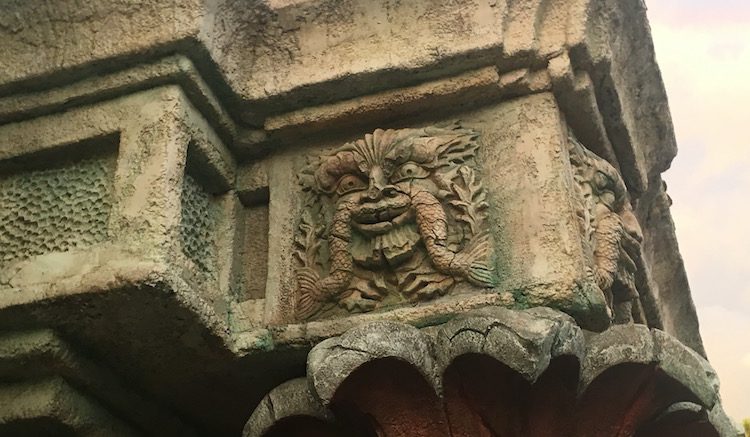
There are probably some things that disqualify a person from being a Witch. Let’s say perhaps you’re a Sunday School Teacher who thinks all other Witches are Satan worshippers and that Jesus is the only way and that magick is bunk. Well then, yeah, maybe that person is not a Witch. But that person is probably never going to call themselves a Witch so I’m not sure it matters. Though Witches have been accused of a lot of bad behavior over the last 1000 years, it’s generally been their accusers who are guilty of said behavior. The enemies of Witchcraft were the ones doing the killing and the torturing (not the other way around). There are Witches who curse people, but no Witch I know has ever put an unwilling person in a torture rack or pulled out their fingernails.
When someone asks today what Witchcraft is, there are lots of answers one can give. Witchcraft can be a practice, a mindset, a spirituality, and even a religion. Cyndi Brannen at Keeping Her Keys writes that “whatever witchcraft is, it is first and foremost deeply personal” and that about sums it up. To be a Witch is to embrace the ambiguity of the word Witchcraft. That ambiguity makes it flexible, and that flexibility is why it has survived all these years and will continue to exist long into the future.
WHAT IS WITCHCRAFT? WHAT MAKES SOMETHING WITCHCRAFT More Thoughts by Patheos Pagan Writers
What Makes it Witchcraft? by Martha Kirby Capo at The Corner Crone
What Is A Witch? Defining Witchcraft For Both Past And Present Day by Scarlet Magdalene at Tea Addicted Witch
The Ever Changing Face of Witchcraft by Ian Chambers at By the Pale Moonlight
What Makes Witchcraft . . . . Witchcraft? by Cyndi Brannen at Keeping Her Keys
Defining Witchcraft: General and Personal by Morgan Daimler at Irish-American Witchcraft
What Makes it Witchcraft? by Kelden at By Athame and Stang
On the Necessary, Ineluctable Otherness of Witchcraft by Misha Magdalene at Outside the Charmed Circle


